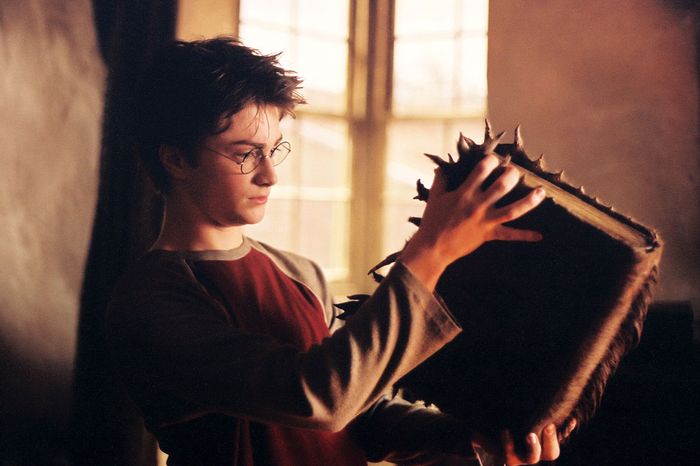
Today’s announcement that HBO — excuse me, Max — will be developing a Harry Potter TV series begins with one very, very annoying adjective. “The scripted TV series,” the release reads, “will be a faithful adaptation of the beloved original Harry Potter books.” “Beloved” and “original” are concepts that come with their own baggage, but the most frustrating word here is “faithful.” In the context of Harry Potter specifically, what that word likely means is that the series will follow the books exactly — no messing around with new interpretations of characters (racial or gendered or otherwise), no incorporation of Potter-skeptical ideas like “Hey, maybe it’s not great that the goblin bankers resemble certain antisemitic tropes,” no deciding on a whim to adjust the rules of Quidditch. (Certainly no attempts to wrest the franchise away from its creator’s recent pivot toward anti-trans bigotry.) No, a “faithful” adaptation means the show will be as much like the books as it possibly can be, and that, apparently, is meant to signal that this adaptation will be good.
What I am proposing, though, is what if it’s not? What if, in fact, faithfulness is a meaningless goal, a quixotic and doomed exercise that’s both creatively bankrupt and almost inevitably dull? What if, actually, faithfulness is bad because it is — stay with me here — impossible and boring?!
For starters, the entire concept is simply false. The dream of a “faithful” adaptation is a work that makes no choices of its own. It is pure translation, a one-to-one, frictionless transfer of energy from one work into another. Everything that goes in on one side of the equation comes out exactly as it was on the other side, but now it’s a screen narrative instead of a written one. Surely that’s simple! What could possibly be the problem?
This is a way of thinking about adaptation that can only exist until the very first moment anyone tries to make an adaptation. Casting someone as Harry Potter requires deciding what Harry Potter looks like. The sets, the costumes, the editing, every single camera angle, every actor’s performance — all are choices being made, and each choice is a demonstration of the fact that there is no straightforward, clear, obvious, “faithful” version. The decision to pick a prop or a line reading that seems closest to the intent of the original work is always an act of interpretation. Even if the aim of that interpretation is to be as close or as faithful as possible, it’s still someone making a choice about what that would mean. The only truly faithful copy would be to reprint the novel; short of that, any adaptation is going to be unfaithful in one way or another.
Given that reality, the main issue is why “faithfulness” is supposedly good, and here I will admit that yes, fine, if you’re making an adaptation it should probably have some relationship to the original work. The tensions and overlaps between an original and its adaptation are much of the fun, especially when they play against one another. If a work is going to just hare off into its own territory altogether, why make it an adaptation at all? (Unless the answer to that is “We could not get this greenlit unless it looked like familiar IP,” in which case, sure, everyone’s out here doing what they have to do.)
But treating “faithfulness” as the chief value of an adaptation is a creative dead end. It turns all adaptations into a pass/fail test, a series of exam questions in which a “faithful” adaptation is correct and anything else is an error. The adaptation becomes a Highlights magazine activity sheet with two side-by-side “spot the difference” pictures, asking viewers to circle each upside-down ice-cream cone or missing minor character with a red crayon. They could be interesting exercises in creative practice, like a 21st-century artist setting up at the Musée d’Orsay to paint an exact copy of Whistler’s Mother, but why on earth would that ever be the most appealing approach for viewers? What is the point of watching a painstaking, homework-y re-creation of a thing you already know and like, empty of any of its own ideas or perspectives?
It’s true for adaptation generally, but it’s especially, painfully true for Harry Potter, a franchise that is ubiquitous in its book form and has an already popular film-series adaptation that has managed to surreptitiously Trojan horse its own ideas into the extant work. (John Williams’s score alone would be enough for those movies to count as individualized artistic productions). Making another adaptation of Harry Potter is not necessarily a bad idea — imagine if that adaptation were to tackle all the ways that story has been embraced and reworked and given new life, including life beyond its original authorship, in the last decade? But the desire to make a new “faithful” adaptation is like something from a Harry Potter story, a mirror you want to look into that will show you exactly what you already are, except somehow newer and better, except also exactly the same. It’s futile. It’s meaningless. It’s empty of any purpose except to make money. In that way, though, maybe it is a faithful adaptation — money, perfectly reproducing itself in Warner and Rowling’s bank accounts.





